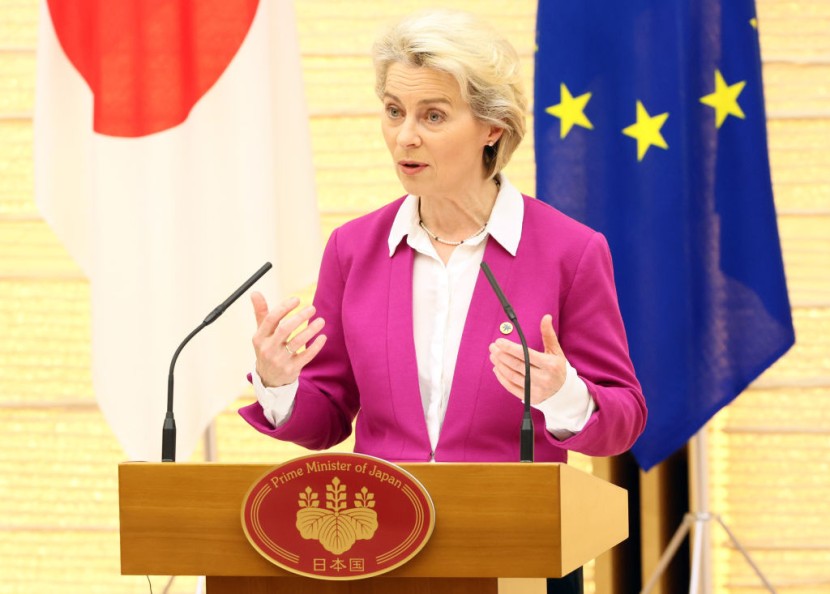
The European Commission presented on Wednesday its $315 billion plan on how the European Union can start to cut its dependence on Russia's energy supply "well before 2030."
The funding is a consequence of the Kremlin's tragic invasion of Ukraine, which has highlighted the political and economic risks of relying on Russian oil and gas. The commission's response seeks to immediately look for alternative sources of fossil fuels while also boosting green energy and cutting energy use.
EU's $315 Billion Plan
The latter goal feeds into the bloc's long-term ambition to become climate neutral by 2050 amid a rising threat caused by climate change. The plan, which has been dubbed "REPowerEU," is a package containing documents, including legal acts, recommendations, guidelines, and strategies, that fleshes out a communication published in March.
The package is based on four pillars; saving energy, substituting Russian gas with other fossil fuels, boosting green energy, and financing new infrastructures such as pipelines and liquefied natural gas terminals, as per Politico.
Commission President Ursula von der Leyen said, "Today we're taking our ambition to yet another level to make sure that we'll be independent of Russian fossil fuels as quickly as possible. REPowerEU will help us to save more energy, accelerate phasing out of fossil fuel, and most importantly, kick-start investment on a new scale. This will be the speed charging of our European Green Deal."
The package also aims to deprive Russia, which is the EU's main supplier of oil, natural gas, and coal, of tens of billions in revenue and strengthen EU climate policies. As the Russian war on Ukraine has seemingly no end in sight, the EU is rushing to align its geopolitical and climate interests for the next decades.
According to ABC News, the situation comes amid troubling signs that have raised concerns about energy supplies that the EU relies on and has no quick replacements for, including Russia cutting off member nations Poland and Bulgaria. The latter decision was made after the two countries refused Moscow's demand to pay for natural gas in rubles.
Dependence on Russian Energy Supply
The bloc's decision to wean off on Russian fossil fuels stems from a combination of voluntary and mandatory actions. They both reflect the political discomfort of helping fund Russia's unprovoked military campaign in a country that neighbors the EU and expressed its desire to join the bloc.
Authorities will start enforcing an EU ban on coal from Russia in August, and the bloc has also pledged to reduce the demand for Russian gas by two-thirds by the end of the year. On the other hand, a proposed EU oil embargo has faced issues from Hungary and other landlocked countries that expressed concerns about the cost of switching to alternative sources.
Brussels is offering a three-pronged plan to reduce dependence on Russian fossil fuels, including a shift to importing more non-Russian gas, faster adoption of renewable energy, and greater energy-saving efforts. The commission said that energy savings were the quickest and cheapest way to address the current energy crisis in the region, DW News reported.
© 2025 HNGN, All rights reserved. Do not reproduce without permission.








